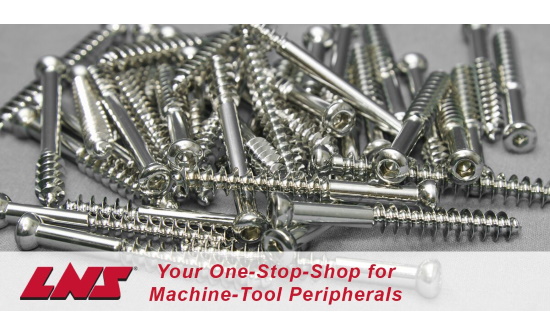Machining parts for medical equipment typically requires adherence to demanding specifications and the use of exotic alloys such as titanium. Some products, such as dental implants, may require high volume runs. In some cases the demand may be for high-mix, low-volume production.
Without the most efficient work cells, these factors will drive up the costs of labor and materials. That’s why it’s so important to equip CNC machine tools with peripheral equipment that optimizes throughput, precision and versatility. These include:
- An Ethernet communications system that enables a turning machine and bar feeder to share data to facilitate automatic part program changeovers on the fly. This provides the ability to run an assortment of parts unattended and even lights-out in one setup.
- Bar feeders, that provide proper bar stock centering and support to reduce vibration for precise machining and enable the machine tool to operate at peak efficiency.
- A coolant delivery system that precisely delivers the right amount of flow and pressure to optimize the cutting zone temperature and efficiently remove chips, thus reducing tool wear, protecting workpiece surface finish and prolonging coolant life.
- Reliable chip management systems that eliminate bottlenecks which can lead to costly downtime.
- Oil/Coolant mist collectors that exceed OSHA and NIOSH requirements to remove mist, smoke and other fine particulates for a safer and healthier workplace.
To learn more about LNS machine tool peripherals that optimize medical equipment machining, contact your local LNS representative, call 513-528-5674 or email: sales@LNS-northamerica.com.

